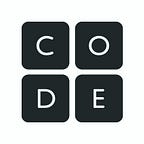Study shows 20% more high school girls like computer science after an Hour of Code
What’s the impact of a single hour of computer science?
We just released the results of a new study, conducted by our own evaluation team, that sought to measure the student impact of an Hour of Code. We surveyed students on their attitudes and confidence towards computer science, both before they did an Hour of Code and directly after.
At a high level, after just one Hour of Code:
- More students reported liking computer science
- More students reported feeling they are able to learn computer science, and
- More students reported feeling they are better at computer science than their peers
These findings were especially true for female students, which is particularly important, given Code.org’s mission to broaden participation in computer science among girls and underrepresented minorities.
For example, look at the change in attitudes among female high school students with no prior experience in computer science:
It’s too early to tell whether this shift in perception will lead to more girls majoring in computer science in college or pursuing a career in it. But these results show how just one positive experience can dramatically transform one’s attitude toward an academic subject. It is often assumed that it’s more difficult to change the minds of students as they get older; this suggests that students should be exposed to computer science at all grade levels.
Indeed, students across all grade levels reported substantive increases in confidence toward learning computer science after doing an Hour of Code. Among elementary school students, 18% more girls agreed with the statement “I am better at computer science than most kids at my school” after their Hour of Code experience. And 16% more high school students — both male and female — agreed that they were comparatively better than their peers at computer science after trying an Hour of Code.
Computer science educators and researchers have been working to understand why female and minority students continue to be underrepresented in the field. Stereotypes have led to assumptions about who is capable of doing computer science, and can also influence students’ attitudes toward computer science as a subject matter. (Why try it if nothing suggests that you’ll like it?)
It’s important to note that many (although not all) of the students that experienced the greatest attitude and confidence shifts had never tried an Hour of Code before. These study results suggest that simple exposure to computer science, with the right activity, may be a critical first step to engage more students — especially girls.
Read the whole report, “The Hour of Code: Impact on Attitudes Towards and Self-Efficacy with Computer Science”.
Or, do an Hour of Code. :)
Hadi Partovi, Code.org
